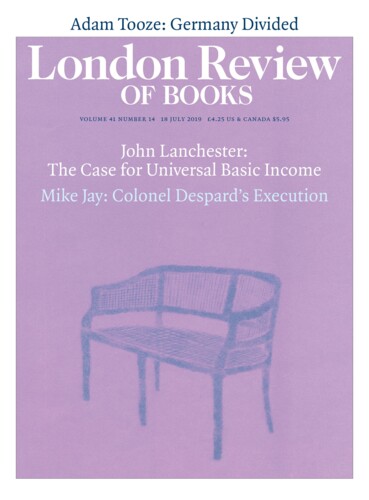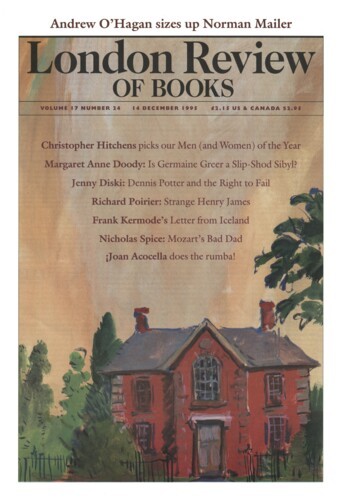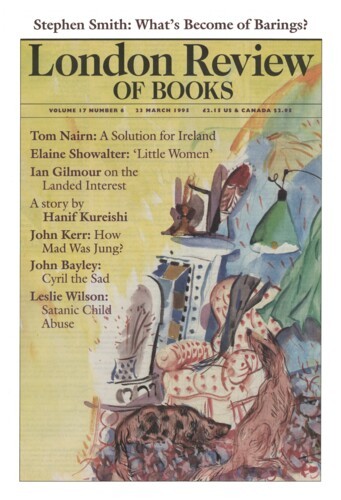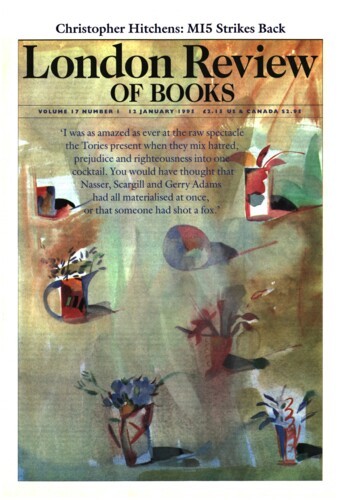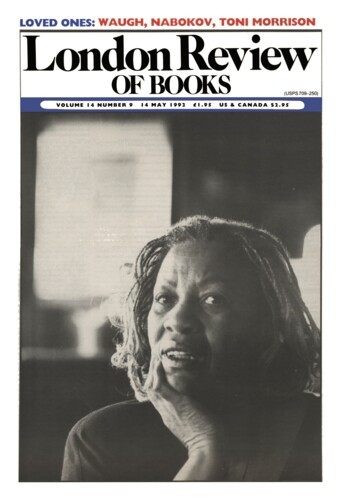Patrick Parrinder
Patrick Parrinder is a reader in English at the University of Reading. His books include Authors and Authority and Science Fiction: Its Criticism and Teaching. A study of James Joyce has recently appeared.
Devil take the hindmost
14 December 1995
Smears and Innuendoes
23 March 1995
The Great Copyright Disaster
12 January 1995
Life’s Diversity
14 May 1992
Pieces about Patrick Parrinder in the LRB
Devil take the hindmost
John Sutherland, 14 December 1995
Among other certain things (death, taxes etc) is the rule that no work of science fiction will ever win the Booker Prize – not even the joke 1890s version. H.G. Wells’s The Time...
Outside the Academy
Robert Alter, 13 February 1992
These two meticulous surveys of modern criticism in all its vertiginous variety lead one to ponder what it is all about and where it may be heading. The book by René Wellek, focused on...
Post-Humanism
Alex Zwerdling, 15 October 1987
When the history of late 20th-century literary culture comes to be written, the extraordinary vogue of metatheoretical works will surely require explanation. What can account for the obsessive...
Raiding Joyce
Denis Donoghue, 18 April 1985
Patience is a mark of the classic, according to Frank Kermode. ‘King Lear, underlying a thousand dispositions, subsists in change, prevails, by being patient of interpretation.’ It...
Read anywhere with the London Review of Books app, available now from the App Store for Apple devices, Google Play for Android devices and Amazon for your Kindle Fire.
Sign up to our newsletter
For highlights from the latest issue, our archive and the blog, as well as news, events and exclusive promotions.
